Dr. Benjamin Spock Biography, Theories and Books: The Controversial Forefather of Intuitive Parenting
Dr. Benjamin Spock took the world by storm in the 1960s and now, more than five decades later, his theories and ideas are still going strong.
Although he was one of the most prominent and well-known figures, he
had a "love/hate" relationship with the parenting community (particularly
among his
co parenting experts), becoming one of the most controversial
experts in the field.
While some people embraced his ideas
whole-heartedly, others criticized Spock, blaming him for everything
from selfishness,
permissiveness to anti-feminism.
His parenting
philosophies were completely opposite the accepted norms of the
time:
-
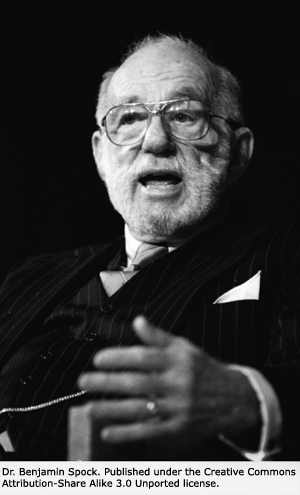 Child-centered parenting and flexibility?
Child-centered parenting and flexibility? - Gasp!
- Whoever heard of such a thing?
- Won't children become spoiled and demanding?
Previous experts, such as
John B. Watson, had emphasized one thing: Schedule, Schedule,
Schedule!
Feed your children on a schedule, make them sleep
on a schedule, allow them to play on a schedule, even hugs and
affection were slotted in at appropriate times and as rewards for
specific behavior.
But, despite very vocal resistance,
mothers everywhere were rushing out to buy Dr. Spock's book Baby
and Child Care.
After being made to feel like they
didn't know anything about parenting, Spock's statement, "You
know more than you think you do" was a breath of fresh air.
In this Article on Dr. Benjamin Spock You'll Get
- A Biography on Dr. Spock
- Common Criticism and Controversy
- Dr. Spock's Famous Theories and Contributions
- Books by Dr.
Spock
The Dr. Benjamin Spock Biography
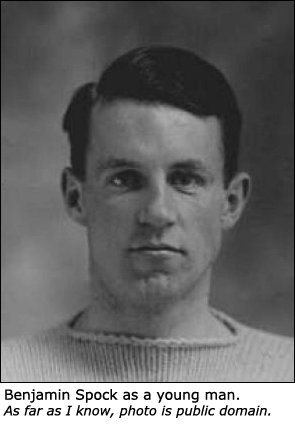 Dr.
Spock was born May 2, 1903 in New Haven, Connecticut, USA.
Dr.
Spock was born May 2, 1903 in New Haven, Connecticut, USA.
Benjamin Spock was the oldest of six children so he often helped take care of
his siblings. He studied literature and history at Yale University,
and was also very active in athletics, actually winning an Olympic gold medal
in rowing in 1924.
Benjamin Spock began studies at Yale
medical school in 1925, but later transferred to Columbia
University's College of Physicians and Surgeons, graduating top of
his class in 1929.
In 1937, he became a board certified
pediatrician.
He went on to open his own practice and also
taught at several institutions of higher learning.
Very
early in his career, he began to realize that approximately half of
the questions parents asked were about psychological issues rather
than medical or physical concerns.
For this reason, he began
to promote the idea that all pediatricians should have training in
psychology.
In 1946, drawing from his observations as well
as his experience as a father of two sons, Dr. Spock wrote The
Common Sense Book Of Baby And Child Care.
The purpose was to
counteract the popular parenting ideas of the time and offer an
alternative approach that was better for both the parent and the
child.
The book's success was unprecedented.
In a
time that demanded rigid conformity, mothers were now being told
that they should relax, treat their children as individuals, and
have fun.
And, unlike other experts who were stuffy and
dictatorial, Dr. Spock was informal, friendly, and approachable.
Dr. Benjamin Spock talked to the parents as if they were the experts on their
own children and made mothers feel confident rather than insecure.
Dr. Spock's Relaxed Parenting Ideas Gave Rise to Criticism and Controversy
The "one size fits all" philosophy was
exchanged for the "every child is different" and "trust your
instincts" approach.
Dr. Spock's non-conformist
ideas as well as his regular columns in the Ladies Home Journal and
Redbook, made him a household name, although
he continued to be criticized by many of his colleagues.
This criticism was escalated further when he became actively
involved in the anti-Vietnam War movement. His left wing political
views, as well as his "relaxed" parenting theories, earned him the
title "Father of Permissiveness".
By this time, the first
generation of "Spock babies" had reached adulthood and his opponents
were looking for a way to discredit his work.
In a time when
the entire nation was questioning both the moral and political
status quo, Dr. Spock was blamed for permissiveness, materialism,
anti-feminism, and rebellion.
In advising parents to trust
their instincts and show affection, he had somehow created a
generation of selfish monsters?
That's what many experts
wanted people to believe. While these accusations were unfounded,
Spock also felt that many of the ideas in his book were
misinterpreted or applied incorrectly.
Dr. Spock Felt Misunderstood
Benjamin Spock did not advise parents to ignore discipline nor did he promote out-of-control behavior.
- "I didn't want to encourage permissiveness, but rather to relax rigidity."
In response to these accusations, Dr. Spock said:
- "Reverend
Peale blamed me for all the lack of patriotism, lack of
responsibility, and lack of discipline of the young people who
oppose the war. All these failings, he said, were due to my having
told their parents to give them "instant gratification" as babies
... I have always advised parents to give their children firm, clear
leadership and to ask for cooperation and politeness in return."
Despite Continued Criticism, Baby and Child Care, Is the Second Bestselling Book of all Time
And, it continues to be a
popular seller because Dr. Spock strove, until his death in 1998, to
keep all the material relevant and up-to-date for every generation.
In addition to magazine and journal contributions, Dr. Spock
wrote several books, covering a wide variety of topics from health
and nutrition to morality, religion, and behavioral problems.
Benjamin Spock was named one of the 100 Most Important People of the
Twentieth Century by Life Magazine, and even more than a decade
after his death, he is still considered to be one of the foremost
experts on parenting.
Dr. Spock's Famous Theories and Contributions
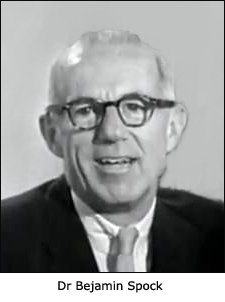 Dr. Benjamin Spock made many contributions to
the field of parenting, and his theories have stood the test of
time, proving that "common sense" never goes out of style.
Dr. Benjamin Spock made many contributions to
the field of parenting, and his theories have stood the test of
time, proving that "common sense" never goes out of style.
Although he is credited with introducing many ideas throughout his
long career, he is most recognized for:
- Intuitive parenting
- A complete and common sense approach to parenting
- The practical application of experts such as
Sigmund Freud and
John Dewey
- Love and flexibility vs. routine and rules
- Relevant and up-to-date material
Intuitive Parenting:
'Yes, Hugging and Kissing Your Child Is a Good Thing!'
For years,
parents had been told that responding affectionately to a baby's
cries would create a spoiled, self-centered child.
Hugging
and kissing and giving-in to their every whim would take control
from the parents and give it to the children.
It might have
sounded great in theory, but people such as John Watson and others
who promoted
authoritarianism were not the ones who had to
live with the consequences.
Where was Mr. John Watson when a
child cried unceasingly in the middle of the night?
Or,
where were the experts when thousands of children became fearful,
insecure adults because they had spent their whole lives working to
"earn" their parents love and approval?
Dr. Spock brought
hope into a desperate situation. He introduced a new approach to
parenting that had many mothers breathing a sigh of relief.
The premise of
intuitive parenting (or attachment parenting)
is simple:
- Parents, not doctors, are the experts on their
own children.
- You know more than you think you do, trust
yourself!
- Listen to your "gut" feelings, and do what YOU think
is best for your child
- Don't worry about what your neighbors,
friends, or family members say, but focus on the NEEDS of your
particular child.
- Every child is an individual, treat them as
such.
- Bond with your child and give affection freely.
- Oh, and have fun!
Intuitive parenting is not about permissiveness or lack
of discipline.
It is about doing what is best for your child
so that he will develop a
strong sense of value and self-esteem.
Dr. Spock never said that there shouldn't be
boundaries - he simply questioned the previous methods of enforcing
those boundaries and argued that children respond much better to
love than rigidity.
In other words, parents should act less
like sergeants or prison wardens and more like ... well, parents!
Below you will find a rather long interview with Dr.
Spock but if you're really, really interested in getting in-depth
with him and his parenting views on e.g. Freudian insights,
permissiveness etc. it's worth view ;-)
Complete and Common Sense Parenting:
'Parenting Is not a Big Mystery and You Can Do It!'
One of the most appealing things
about Dr. Spock was that he always gave practical advice.
Parents didn't have to buy special items or follow a complicated six
step routine. There were no personality tests or hours of
psychological probing. He didn't confuse people with scientific or
medical jargon, and he never made mothers feel stupid or inept.
Benjamin Spock made sense!
And, his theories could be
applied by anyone, anywhere, no matter where you lived, how much
money you made, or how many children you had.
And, he didn't
just talk about one aspect of parenting such as discipline or
sleeping problems, but had a complete approach, making sure that
parents were prepared for everything they may encounter.
His
books and articles included material on toilet training, temper
tantrums, and illness, as well as nutrition, obesity, discrimination,
and altruism.
Dr. Spock gave practical, applicable advice on
every question a parent may have, and gave peace of mind to many
mothers who had previously believed that they did not "measure up".
Practical Application of Freud and Dewey:
'Finally They Make Some Sort of Sense'
Although Sigmund Freud is now a household
name, his writings are both complex and confusing.
Benjamin
Spock, like Sigmund Freud, believed that many adult problems are a
result of childhood issues, and
Freudian ideas are evident in his theories.
For the first time, "Oedipus Complex" and
"Infantile Experiences" were understandable to the average parent.
Spock made Freud and Dewey make sense!
Now, these
experts were no longer just names studied in a university classroom,
but they became relevant to a whole new generation of people.
Thanks to Spock, parents now knew what Freud was trying to say
and they understood how to apply these ideas to their child-rearing
practices.
Love & Flexibility vs. Routine & Rules:
'Yes, You May Kiss Your Baby and It Doesn't Even Have to Be Scheduled'
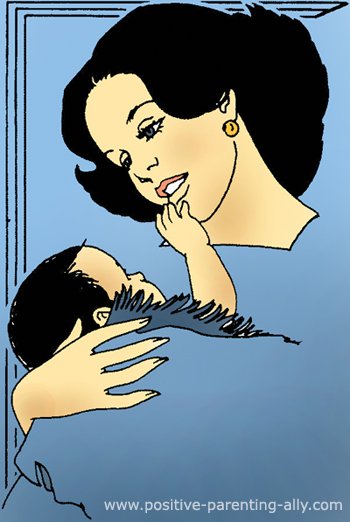 Remember, parents had always been told that their babies should
eat, sleep, and play on a schedule that was imposed upon them by the
adults in their life.
Remember, parents had always been told that their babies should
eat, sleep, and play on a schedule that was imposed upon them by the
adults in their life.
Allowing them to eat an hour early or
rocking them back to sleep in the middle of the night would create
children that ruled the home.
Kids were supposed to do
whatever their parents said, and the job of a good parent was to
make sure that their children were molded into the perfect specimens.
The ultimate goal was to have babies sleeping through the
night, eating three times a day, and learning to play independently
as soon as possible.
In an attempt to make sure that the
children did not control the home, the opposite actually happened -
the parents controlled the children. And, every child had to fit
into a rigid, non-flexible framework.
But, unconditional
love cannot flourish in a controlling atmosphere.
And,
although a cranky, collicky baby can reduce a mother to tears of
exhaustion, the simple fact is that most parents want to
hold their children. Most mothers want to play with their
babies.
Many of the previous parenting ideas were simply
unnatural - and completely at war with a mother's natural instinct!
So, even though Dr. Spock created a lot of controversy, he was
really only speaking what was in most mothers' hearts.
He
gave them permission to hug, kiss, cuddle, pamper, and enjoy their
babies.
And, he not only said it was OK to show affection,
he told them that it was the best thing they could do for their children.
Spock: 'Just Like Adults Are Different so Are Children - and They Should Be Treated as Such'
As adults,
we don't like rigid, non-flexible rules.
We want to be
treated as unique individuals, and Spock suggested that we give the
same respect to our children.
Since every child is different,
a "one-size-fits-all" approach to parenting cannot be effective.
Some children are ready to be toilet trained at 24 months, while
others are 36 months.
One child may be calm and passive,
while another is active and inquisitive. Spock urged parents to
throw out the rigid rules of conduct and milestone achievement for a
more flexible approach to parenting.
While "go with the
flow" was the mantra of the sixties, it did encourage parents to
respond to their children based on their needs, personality, and
individuality.
Allowing for a little flexibility in the
rules will give children the space within which to grow, explore,
and become all they are meant to be.
Spock Introduced the Concept of Fun into Parenting
In short, love, affection and
flexibility can make parenting fun!
This was a novel idea to
a generation of parents who had been ingrained with the
responsibility of producing children who did the right thing at the
right time.
Isn't the job of a parent to mold and shape a
child to the socially acceptable standard? Who has time for fun and
games?
Well, according to Dr. Spock, parenting should be
mutually enjoyable. Children are meant to cherished and enjoyed, not
controlled and conformed.
Dr. Benjamin Spock Always Made Sure His Material Was Relevant and Up-to-Date
Unlike many other
experts, Spock always worked to make sure his books and theories
were current with the changing times.
He recognized that
every generation faced unique issues that needed to be addressed,
and he wasn't afraid to change his material to accommodate social
and medical concerns.
While many people in the field of
parenting were left by the wayside because their material did not
seem relevant to a new generation, Dr. Spock made it a priority to
communicate with parents of every age and to explain how intuitive,
or child-centered, parenting could still be applicable in current
situations.
As Society Changed, so Did the Emphasis of Spock's Books
He still addressed the basic issues of
feeding, bathing, nutrition, toilet training etc, but he recognized
the need to adapt his material to an evolving world.
He made
additions to reflect the changes in the role of women and removed
the strongly sexist language that was present in the first printing.
He also devoted time to discuss such things such as two job
families, single parenting, step-parenting, divorce, and homosexual
or lesbian families.
Because Dr. Benjamin Spock was not
afraid to admit when he was wrong and worked to constantly make sure
his books were current and up-to-date, his theories and ideas have
stood the test of time and survived despite criticism.
He
has transcended generations and still speaks to the hearts of
parents everywhere. His words echo through the decades:
- "Trust yourself, you know more than you think you do!"

Books by Dr. Benjamin Spock
Over the course of his
lifetime, Benjamin Spock wrote several books, although many of them
covered very similar material. s publications and
television appearances changed many popular child-rearing practices
and made Dr. Spock a world wide phenomenon.
At the time of
his death, his first book, The Common Sense Book of Baby and Child
Care, had sold over 50 million copies and had been
translated into 42 languages.
It is second in international
sales only to the Bible, and continues to be one of the most popular
parenting manuals available today.
Baby and Child Care (1946)
First published as The Common Sense Book of Baby and
Child Care, this book has seen nine revisions and is now
sold as Dr. Spock's Baby and Child Care.
Depending
on the volume, different topics may be addressed such as divorce,
single parenting, and modern fathering, but the basics remain the
same.
This parenting manual is filled with practical advice
about feeding, nutrition, illness, child care, discipline, media,
bonding, sleeping, and both social and physical development.
While all of Dr. Spock's books resonate the same message, this
is the one that started it all.
Baby and Child Care
introduced the world to revolutionary ideas such as:
- Trust
yourself and your child
- Follow your intuition
- Treat
children as individuals
- Parenting should be enjoyable for both
the parent and the child
Feeding Your Baby and Child (1955)
This book was intended to be a companion to Baby and Child Care
and was written in consultation with Miriam E. Lowenbery, who was
the head of the department of Food and Nutrition at Pennsylvania
State University.
It covers such topics as:
- Diet
during pregnancy
- Nursing
- Weaning
- Formulas
- Introducing solid foods
- Feeding problems
- Illness
- Making food fun and interesting
- Catering to preferences and
influencing attitudes toward food
Dr. Spock Talks With Mothers (1961)
Although this book contains some original
material, it is largely comprised of articles that Dr. Spock wrote
for the Ladies Home Journal.
For the most part, it
answers commonly asked questions that many parents have, including
topics such as:
- Physical fitness
- Birth order
- Sibling rivalry
- Quarelling
- Obedience/punishment/discipline
- Bedwetting
- Sleep and bedtime problems
- Aggression in
children
- Whining
- Issues and concerns faced during teenage years
The purpose of this book is to offer basic guidance to
mothers and help them achieve parenting methods that will benefit
both parent and child.
Raising Children in a Difficult Time (1974)
As mentioned, Dr. Spock recognized societal changes
and tried to address new parenting concerns as they arose.
This book deals with some of the difficult topics not thoroughly
covered in any of his previous writings such as:
- Drug use
- Contraception
- Sex and disease
- Morality
- Increased
responsibility for children
- Discrimination
- Altruism
- Relationships between parents and children in teen years and early
adulthood
Spock on Parenting (1988)
Again, this book provides a relevant and current approach to other issues discussed in previous books including two job families, single parenthood, role of the modern father, religion and God, sexual equality, healthy gender attitudes, and developing your child's potential.
More additional paragraphs go here
Last paragraph here
Your Positive Parenting Ally,
Birgitte

Want to stay in touch and get the latest news?
Sign up
for my free newsletter
Parent Coaching
- For Inner Peace, Clarity and a Deeper Connection to Your Child
 Being a parent can feel like a double-edged sword. Life with kids may feel like the greatest gift you have ever received, while at the same being hugely challenging, often leaving you confused, stressed and overwhelmed.
Being a parent can feel like a double-edged sword. Life with kids may feel like the greatest gift you have ever received, while at the same being hugely challenging, often leaving you confused, stressed and overwhelmed.
When we feel like this, we've lost touch with ourselves. We can't hear our own inner voice, and it's difficult to know what is 'right' for us and how to act.
I offer in-depth parent coaching to help you regain your balance and get back in touch with yourself. From a place of inner peace and clarity, your will find your own answers which will help you reconnect with your child from a place of unconditional love and acceptance.
Read more about my parent coaching here.
Where Would You Like to Go Next?
Famous Parenting Experts Overview
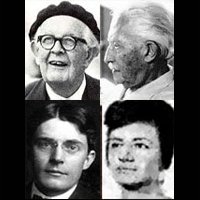 Famous Parenting Experts and Their Parenting Styles Theories: Humanism vs. Behaviorism. |
Parenting Experts Related to HUMANISTIC Parenting Styles (Founders, Refiners, Supporters or 'Coiners')
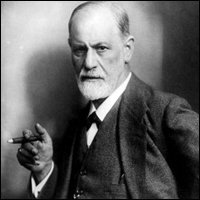 Sigmund Freud the Controversial Pioneer of Psychology: The Famous Psychosexual Stages of Child Development. |
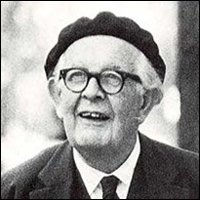 Jean Piaget Biography, Theories and Books: The Earliest Torch Bearer of Humanism. |
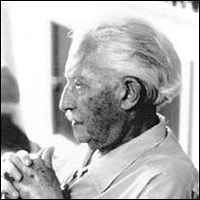 Erik Erikson Biography and Theories: The 8 Developmental Stages, Identity Crisis and Ego Identity. |
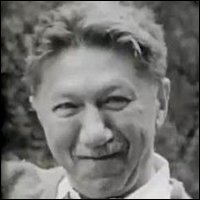 Abraham Maslow Biography: The Father of Humanistic Psychology and Self Actualization Theory. |
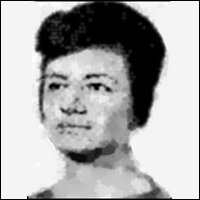 Diana Baumrind Spot-on: Biography, 3 Parenting Styles and Criticism (Spanking). |
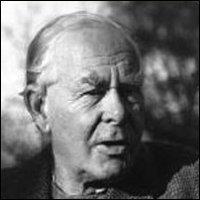 A Biography of John Bowlby: The Father of Attachment Theory. |
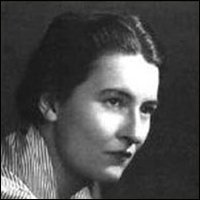 An Intriguing Mary Ainsworth Biography: The Refiner of Attachment Theory. |
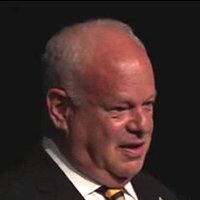 Martin Seligman: The Critic of Traditional Psychology and Father of Positive Psychology. |
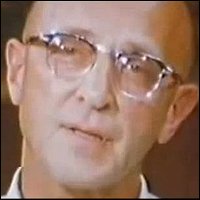 Carl Rogers Biography, Theories and Books: The Founder of Humanistic Psychology. |
 Alfie Kohn Biography, Theories and Books: The Father of Unconditional Parenting. |
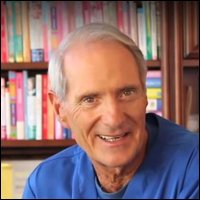 Deep Insights into the Essence of Dr Sears' Attachment Parenting - Along with a Fascinating Historical View on the Slow Rising Consciousness of Attachment Parenting. |
Parenting Experts Related to BEHAVIORIST Parenting Styles (Founders, Refiners, Supporters or 'Coiners')
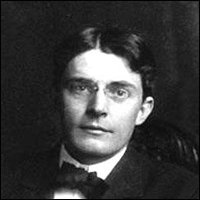 John B Watson Biography, Theories and Books: The Father of Behaviorism. |
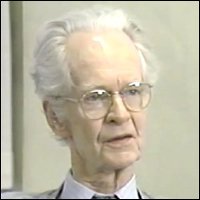 B. F. Skinner Biography, Theories and Books: Father of Radical Behavorism. |
 Amy Chua Biography and Theories: Tiger Mother's 9 Parenting Principles. |
Back to the top of this page about Dr. Benjamin Spock Biography, Theories and Books: The Controversial Forefather of Intuitive, Attachment Parenting
Go to the Positive Parenting Ally Homepage







